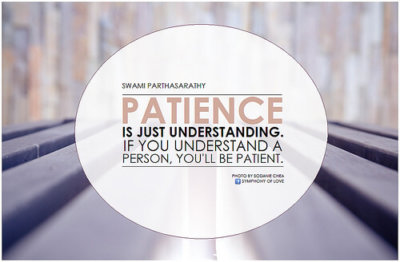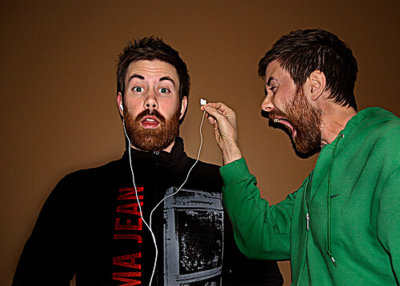Understanding People – 10 Ways to Make It Easier

By: TrinDiego
by Andrea M. Darcy
Constant difficulty relating to others can leave you feeling alienated, frustrated, and overwhelmed by loneliness, and is often a contributing factor for depression.
If understanding people is something you struggle with, what can you do to to make seeing how others think and feel easier?
10 Ways to Start Understanding Others More
1. Expect it to take time and energy.
Do you decide someone isn’t worth getting to know based on one small thing about them you don’t like? Or after only one quick meeting, are you convinced another is ‘too complicated’ for you?
People are formed of a lifetime of experiences, and like all good things need time and energy to be understood.
Stop any quick judgements and commit to being more open and available to the experience of getting to know someone, then triple the time you think it might take.
2. Drop the assumptions.
Instead of being sure you won’t like someone or they won’t like you, or making assumptions you won’t understand them based on small things (the way they dress or speak, who they are friends with), try to imagine that each person is a blank slate you know nothing about until you talk to them and spend time with them.
[Not sure you know what assumptions really are, or if you are or aren’t making them? Read our article on Why You Are Making Assumptions].
3. Be fully present.

By: BK
It’s hard to listen to someone when you are lost in your head, thinking about what you did at work earlier in the day or what you’ll cook for dinner later.
If we are caught up in the past or future instead of being in the present with the other person, how can we understand them?
Employ mindfulness techniques to get fully present. Take a few deep breaths, noticing how the air comes in and out of your body. Pay attention to something concrete about the other person to draw you into the present moment – the colour of their sweater, the way they move their hands. Focus fully on what they are saying, repeating it in your mind as they speak.
4. Use the power of perspective.
Perspective is the unique way you see things. And although it’s easy to assume others can understand your view, everyone sees things from their different perspective.
It’s as if everyone in the world were standing around a giant statue of an elephant. If you are describing the trunk to someone who is looking at the tail, you are bound to have a misunderstanding.
Never assume someone else thinks just like you or sees things as you do. Try to imagine life through their lens (try our article on The Power of Perspective for more on how this works) and explain how you see things as clearly as possible without blaming the other for not having your viewpoint.
5. Read body language.
While it would be helpful if everyone said what they really thought or felt, it’s not the way our society works. Most of us are instead programmed to say what we think others want to hear.
For example, we say we are ‘fine’. but our shoulders are slumped and we are fidgeting (we aren’t okay at all). Or we say we are okay to do something because we think we should, but our arms are crossed and we look down (we don’t really want to do it at all).
Learn the basics of body language and you’re bound to be more sensitive to others. Do keep in mind, though, that everyone has their personal habits – if a person always slumps their shoulders because they are very tall, it might be more of a habit than a sign that they aren’t okay.

By: Jonathan Powell
6. Listen fully instead of halfway.
‘Half listening’ is a bad modern habit – we listen as we check our phone, or as our mind goes over the shopping list.
Become a better listener by trying to clear your mind of other things and fully focussing on what the person is saying, leaving a pause before you respond instead of interrupting.
7. Practise reflecting back.
This is a part of listening skills that of itself can do wonders not only for your ability to understand others, but for making others feel heard and thus more comfortable around you.
‘Reflecting back’ involves rephrasing and repeating what someone has said to you so that you are both on the same page. For example, if someone tells you that they are very upset because they just spoke to their spouse and he mentioned that the trip they are going on is cancelled you would reflect back, “so, you feel upset because your partner cancelled the trip?” The other person might then explain that no, they actually aren’t upset at their partner, but at his company that changed his vacation week.
8. Ask really good questions.
Try to start questions with how or what over why. “Why’ questions leave the other person to speculate and look backwards, questioning themselves, leading to confusion for both them and for you, the listener. How and what tend to be questions that cause one to look forward and find clear solutions. [Read more in our article on the Power of Good Questions.]
9. Watch out for projection.
Psychological projection is when we unconsciously attribute the way we ourselves are thinking and feeling to others, thereby avoiding facing up to our own unwanted emotions or thoughts. For example, if you don’t like someone but feel guilty, you might instead tell everyone the other person doesn’t like you.
Learning to stop projecting means you can finally start to see others for what they are, not what you need them to handle for you.
10. Learn to understand yourself better.
The more time you invest in understanding the way you personally think and feel, the easier it is to have compassion for others. Try some bibliotherapy (good self-help books), journalling, mindfulness, or self-compassion as a start. Or work with a counsellor who can be an unbiased and supportive help to guide you into making sense of yourself.
Is my struggle to relate really so important?
Struggling to understand others can simply be the result of a childhood where the adults around you didn’t model good relating skills, and just be something you need to teach yourself.
But if you are constantly struggling with this issue it can be worth speaking to a therapist. Struggles with relationships can also be a sign of certain psychological issues that can include codependency, low self-esteem, Asperger’s syndrome, borderline personality disorder, avoidant personality disorder, and antisocial personality disorder.
Can therapy help me understand others better?
Absolutely. Relationships are so important to psychological wellbeing that although all types of talk therapy will help you with the way you interact with others, there are several forms of therapy which focus just on helping you with relationships. Two such talk therapies that might be of use to you are dynamic interpersonal therapy (DIT) and cognitive analytic therapy (CAT).
 Andrea M. Darcy is a wellbeing and health writer and mentor who loves writing about relationships. Find her @am_darcy
Andrea M. Darcy is a wellbeing and health writer and mentor who loves writing about relationships. Find her @am_darcy




